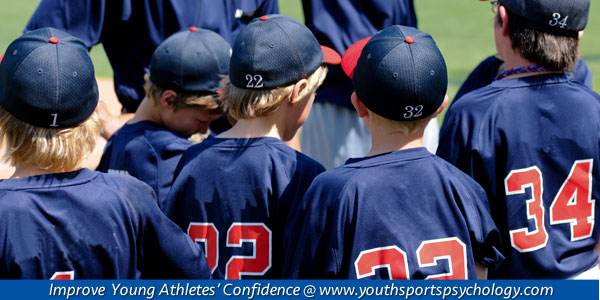
The Impact of Negative Thinking
Greg Liberto’s tryout for a sophomore baseball team changed his life forever.
He had played baseball as a freshman, but as a sophomore his parents switched him to his school’s arch-rival. When he went to the try-outs, he had a huge chip on his shoulder, he says. And although he was a very strong athlete, he didn’t make the team—because of his negative attitude.
“I carried that resentment with me for 30 years,” he says, and learned about the incredible impact of negative thinking.
Now Liberto dedicates his time to teaching young athletes—especially golfers—how to overcome negative thinking, or what he calls Automatic Negative Thoughts.
“These are things that hold golfers or people in general back. They don’t understand how they are affecting their emotions or their objective thinking,” he says.
The first step for kids, he says, is to identify their negative thoughts.
“A lot of this is based on our history. You may have thoughts around a particular shot—playing over water,” for example, he says. “It’s a shot that’s been with you for years, but you don’t know how to change your energy, how you think and ultimately how you play the game.”
Kids might have negative energy related to a particular opponent, golf course, or the weather, for example.
“Identifying kids’ ANTs is a fun activity for me to go through as a coach because it gives me a lot of insight into my players,” he says.
To overcome the ANTs, the next step for kids is to physically stop what they are doing. They need to reverse their thought process, and start thinking only positive thoughts.
If you’d like to learn more about how help kids overcome negative thinking, check out Kids’ Sports Psychology. Exclusive members have access to our interview with Liberto here:
Listen to Our Expert Interview Here!
You’ll also find plenty of other information about how to boost kids’ confidence and overcome negative thinking at Kids’ Sports Psychology in our articles, e-books and videos.
Related Articles on Kids’ Mental Game:
- Helping Sports Kids Who Call Themselves Negative Names
- Help Sports Kids Overcome Negative Thinking—In Sports and Life
- How Negative Labels Hurt Young Athletes
*Subscribe to The Sports Psychology Podcast on iTunes
*Subscribe to The Sports Psychology Podcast on Spotify
The Composed Sports Kid

“The Composed Sports Kid” audio and workbook digital download program for young athletes and their parents or coach helps kids cope with frustration and anger in sports. Help your sports kids learn how to manage expectations and let go of mistakes so they can keep their head in the game.
The Composed Sports Kid system is really two programs in one–one program to train parents and coaches how to help their kids practice composure, and one program that teaches young athletes–ages 6 to 13–how to improve composure, let go of mistakes quickly, have more self-acceptance, and thus enjoy sports more!
